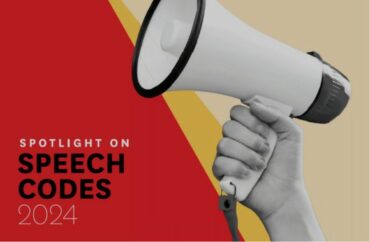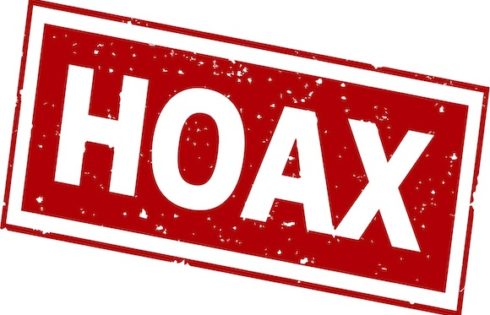
Some universities ban ‘unwelcome jokes’
Broad “harassment” policies drive some campus free speech problems, according to a new report.
The 2024 Spotlight on Free Speech Codes report looked at 489 schools and rated them “red light,” “yellow light,” and “green light.”
“While the percentage of green light schools increased this year, this also marks the second year in a row that the percentage of red light schools increased, reversing a 15-year trend of decreasing percentages of red light schools,” the Foundation for Individual Rights and Expression stated.
“The main contributor to the red light ratings? Schools maintaining overbroad policies on harassment that put protected speech at risk,” FIRE wrote in its summary.
The ratings are also “based solely on the school’s written regulations and do not take into account a particular institution’s broader climate for free speech,” according to FIRE. The University of Chicago, for example, is a “green light” school but suppressed the Turning Point USA chapter.
FIRE’s policy reform director provided further insights to The College Fix.
Some universities have “broad definitions” of harassment “that essentially ban any disfavored speech,” FIRE Director of Policy Reform Laura Beltz told The Fix via email.
A new Massachusetts State Universities system policy prohibits “broad, subjective examples” like “‘derogatory comments,’ ‘unwelcome jokes,’ and… ‘derogatory’ symbols or objects,” according to Beltz.
While such examples could constitute harassment in some cases, “banning all derogatory comments, jokes, or symbols includes a great deal of protected speech,” Beltz told The Fix. “Students wishing to express themselves on controversial topics may be concerned they could land in trouble if someone finds their speech derogatory.”
She also noted the role of controversial political situations in the free speech rating, particularly citing recent developments in the conflict between Israel and Hamas.
But Beltz and FIRE want to help universities.
“Sometimes we’ll just send colleges examples of policies from other schools for them to consider as they make changes, other times we’ll prepare recommended revisions for each policy we flag at the school,” she told The Fix.
FIRE will also review “drafts of new or revised policies” sent to them by universities for feedback.
“Students, alumni, and faculty” can play a role in effecting change, according to Beltz.
Those “who are concerned about these speech codes should contact their schools to let them know, telling them the institution can’t succeed without uninhibited freedom of inquiry and expression,” she said.
MORE: MIT student group continues free speech fight in 2024
“Red light” school Utah State University is working to make changes.
Spokeswoman Amanda DeRito said the rating was “made from a distance” and lacked context.
“Utah State University has been working to update the USU Students Code, and we have already considered the FIRE model code as a resource during this process,” she told The Fix.
The new code will “retire many of the sections highlighted by the FIRE ratings,” DeRito said.
Other FIRE research found 57% of students at Utah State University claim to have “self-censored on campus at least once or twice a month,” and “58% of students say they are worried about damaging their reputation because someone misunderstands something they have said or done.”
The polling also found that around “for every one liberal student, there are roughly 1.2 conservative students.”
Political pressure is also working on Utah State.
Just last year, Utah Governor Spencer Cox criticized school leaders “commenting on current events,” leading the Utah Board of Higher Education to “[require] all public colleges in the state to draft resolutions outlining protections for free speech for students and community members – as well as limitations,” according to The Salt Lake Tribune.
DePauw University is another success story.
According to Beltz, the school ranked “dead last” in 2021 but moved from the red light to green light rating after revising six student expression regulations with the help of FIRE over the next year-and-a-half.
“We aim to provide whatever help and resources schools need for revising these regulations on expression,” Beltz said. “[N]o matter what stage of the policy revision process they’re at.”
MORE: Columbia bans ‘offensive’ social media comments
IMAGE: Foundation for Individual Rights and Expression
Like The College Fix on Facebook / Follow us on Twitter





Please join the conversation about our stories on Facebook, Twitter, Instagram, Reddit, MeWe, Rumble, Gab, Minds and Gettr.